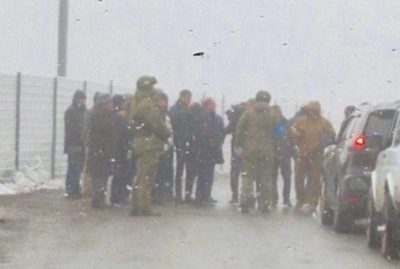By Joshua Kucera
As the blockade of Nagorno-Karabakh drags on, the performance of the Russian peacekeepers charged with providing security on the road in and out of the territory is coming under closer scrutiny than ever before. And the reviews, from all sides, have been scathing.
Under the harsh spotlight of the constant coverage by pro-government Azerbaijani media, the peacekeepers have appeared uncertain of how to manage the belligerent protesters that have managed to shut down the road for four days and counting. On some occasions the Russians are easily pushed around by the protesters and reporters, on others they lose their patience and lash out.
The performance has only deepened skepticism of the Russian peacekeeping mission on both sides.
For Armenians, the episode has confirmed the Russians’ impotence in the face of Azerbaijani pressure. Baku has been steadily ratcheting up pressure on Yerevan to sign a comprehensive peace agreement that would restore Azerbaijan’s control over Karabakh, and their challenges to the peacekeepers have become sharper as the Russian military has gotten bogged down in Ukraine.
For Azerbaijanis, the crisis has only confirmed that the peacekeepers harbor pro-Armenian sympathies. Azerbaijani officials and media have long accused the peacekeepers of having comradely relations with the de facto government in Nagorno-Karabakh, which Baku regards as an illegitimate separatist entity.








